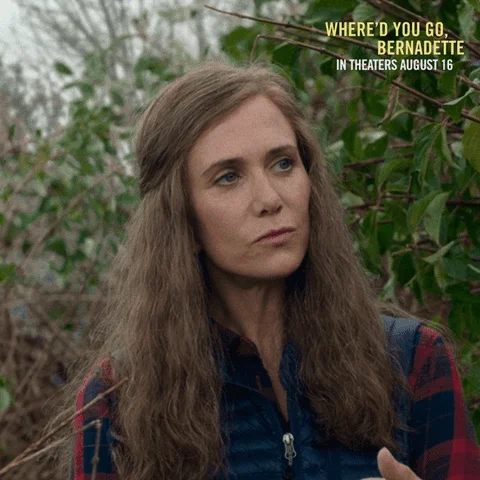A ongoing thread for discussions about education and the systems we have built around them in our modern world. Includes Pre-K-12 on up to all aspects of higher ed!
Is the system arcane? Yes. Does it protect some bad teachers and bad actors? Yes.
Does the nuttiness that’s happening in public K12 school board meetings give some insight into why, with all its flaws, it remains necessary? Yes.
Otherwise, why are conservatives working so hard to destroy it?
With profound implications for higher Ed.
Yep… I think we can hold a couple of thoughts in our head at once - that, yes, academia needs serious reform, but that tenure or some other means of protecting academics from political backlashes is absolutely necessary for good scholarship that is actually insightful to be produced.
That being said, there are plenty of people who end up losing out by refusing to compromise their views and principles. I’m thinking of someone like Norman Finkelstein for example, who clearly was denied tenure because of his political views.
It’s frustrating, because there are things that clearly need changing, but we also know that these conservatives are not making good faith efforts to improve the system - they literally just want to shut down “liberal” profs making uncomfortable arguments about the world!
We (UK) abolished tenure officially, and the system has gotten worse since. The teaching union put out a cartoon of an academic walpapering their office with temp 1 year contracts.
Not that I see anything good happening on either side of the Atlantic while we see higher ed as a business and not as a public good.
There it is, in a nutshell.
Of the 1,799 new historians who received Ph.D.s in 2019 or 2020, only 175 had landed full-time faculty jobs in history as of last fall — and it is not clear how many of those are tenure track. The number of undergraduate majors in history has plummeted. L
https://www.chronicle.com/article/so-you-want-to-be-a-history-professor
One in ten??!!
This is going to be bad for a long time, if we’re creating more financial analysts and middle managers than historians.
A couple of thoughts. Of the 9 in 10, a substantial number probably got contingent jobs, with the hope that they could migrate to tenure-track. And, many people have been yelling about this for years in the history profession. But now that it’s affected the Ivy Leaguers it’s a problem? lol. OK.
The author outright dismisses the obvious solution:
Another possible solution is introducing serious training for non-academic fields into our Ph.D. programs so that students can enter these fields more readily. The problem here is that these fields are numerous and diverse — they include publishing, academic administration, museum work, library work, high-school teaching, community-college teaching, foundation work, think-tank work, journalism, diplomacy, etc. — and history-department faculty generally have expertise in none of them. Yes, we could subsidize internships and bring in guest personnel to run programs. But this “alt-ac” preparation would also take serious time away from dissertation work, which could hurt our students’ chances of getting the few tenure-track jobs that do come up.
Basically "ah, we can’t re-toll what we do, sorry. Instead:
Here is my solution. It’s more radical, and probably a fantasy, since it would require the sort of large-scale structural change that our decentralized university system isn’t really capable of. Nevertheless, here it goes: Reduce the Ph.D. to four years — two years of course work plus two years of research and writing, with the goal of having two published articles, rather than a book-length manuscript at the end of it. Eliminate most stand-alone master’s programs, which would now be redundant (although not those programs which principally train K-12 history teachers). Eliminate teaching requirements for Ph.D. students and eliminate all current postdoctoral fellowships. At the same time, create a relatively small number of full-time, paid (and benefit-conferring) instructorships to cover the teaching that graduate students now do. People would hold these positions for a maximum of five years. At least at some institutions the funds currently used for postdocs could be repurposed to provide research and writing leave for them. At the end of five years, instructors could apply for jobs as assistant professors. The majority of doctoral students would leave the field after their four-year Ph.D. program, but at least they would not have invested anywhere near as much time in the process as graduate students do now.
Essentially “We faculty get to keep doing what we’re doing.” It doesn’t take into account that people are taking less history at 4-year institutions, regardless of the number of PhDs. Students are taking history in AP, or in Dual Enrollment, or at 4-year institutions, and then not taking it in college. All his “solution” does is re-order the grad experience and get people out more quickly. It doesn’t change the fundamental equation: too many PhD programs. It also removes teaching from the graduate experience. The only place any kind of teacher training (even if crappy) takes place.
Princeton has a great history department. But my god they are so out of touch.
I hit a paywall, so here is the article freed from it’s prison!
I’m guessing not a ton… most of the folks I know ended up in relatively solid positions as full time lecturers (which has it’s own pathway up to senior lecturer, with some protections at least at GSU/perimeter), but the reality is that a lot of people stopped looking for full time positions that are tenure track, because they just aren’t there… but it seems like a problem with following up with surveys they’ve been doing on this issue… and of course, now there competition is pretty fierce for those lecturer positions. ![]() Full time lecturers are perimeter teach a 6/6 load. At this point, I’m not even sure I want to do that. At least with teaching one or two a semester, I can do things like assign papers and some research… I doubt that’s possible with a 6/6 load.
Full time lecturers are perimeter teach a 6/6 load. At this point, I’m not even sure I want to do that. At least with teaching one or two a semester, I can do things like assign papers and some research… I doubt that’s possible with a 6/6 load.


The solution that the AHA has mostly pushed has been “job diversity” training in masters/PhD programs, as you note, but there has been resistance to that, as you quote from the article. I think it’s partly a problem of people who are safe in jobs who got those jobs when they were more plentiful, and are loath to train their prospects to do anything else, because getting people placed in tenure track jobs is a big part of the prestige of being a professor.

I probably should have stopped at my MA and maybe gotten an education MA to go with it, and taught HS or something. I would at least have full time job. At this point, I’m really only keeping on teaching in order to keep access to academia for research purposes…
Are think thanks still hiring history PhDs these days? I had a professor in my undergrad days who urged me to take that route.
Must be all that looking backwards ![]()
I do despair when I see what TPTB have decided should be prioritized in terms of education and the liberal arts.
Fundamentalists, ruining things for everyone else since forever.
My PhD supervisors had anywhere from 2-5 students under them at any given point in time. Unless universities are expanding, we clearly couldn’t all stay on after graduation - one doc would produce 3 PhDs in 4 years, each of them would produce 3 in 4 years…
The problem with that is that not all historical fields are suited for think-tanks. You have to be in a subfield that would fit well with one, and not all of us are. And even if there were, I doubt there are enough positions for everyone.
This is an important point a lot of people don’t get, and which, frankly, is the fault of PhD programs and advisors. They need to tell students “Hey, the Book of Kells is quite interesting, yes. But we don’t need another dissertation on it. Choose something that’s marketable, maybe outside of academia.”
Yeah, and that was my professor’s roundabout way of telling me that. And this was nearly two decades ago.
When I said I wanted to go to law school (Spoiler: Never happened.), the same professor quipped, “That’s a good idea. You can get a high-paying job as a consultant on Law and Order.” (Again, two decades ago.)
![Things you don't say out loud in academia [9 open secrets]](https://global.discourse-cdn.com/boingboing/original/4X/c/1/1/c11fb787a5dc5c2f7a76b6b93f1d2cb3dfe07378.jpeg)
